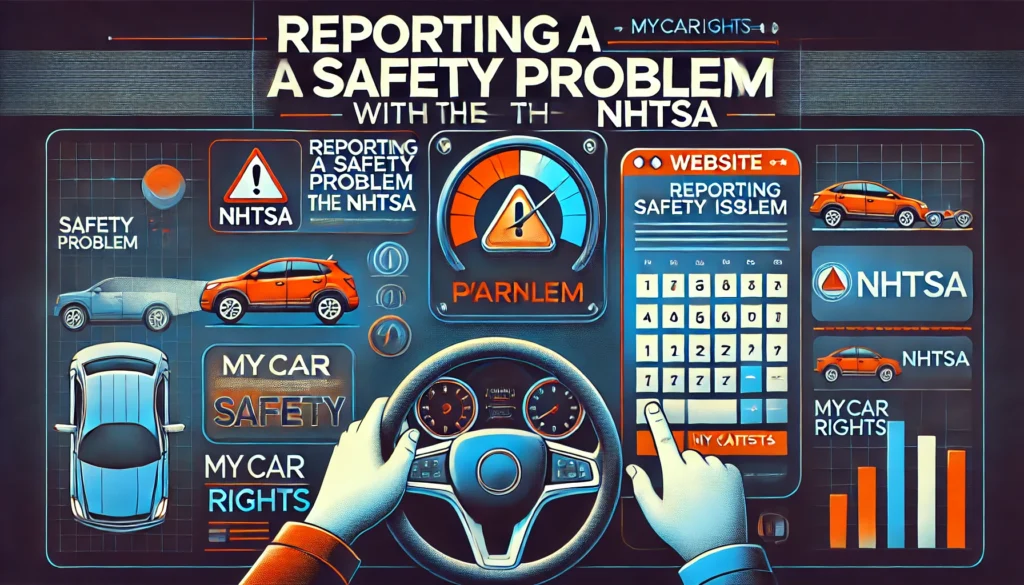
The National Highway Traffic Safety Administration (NHTSA) plays a vital role in ensuring the safety of vehicles on the road in the United States. If you’ve experienced a safety problem with your vehicle, reporting it to the NHTSA can help alert authorities to potential widespread issues, leading to investigations, recalls, and corrective actions by manufacturers.
How to Report a Safety Problem with NHTSA
If you believe your vehicle has a safety defect, the NHTSA provides a streamlined process for reporting the issue. A safety defect could include problems such as:
- Braking system failure
- Airbag malfunction
- Steering issues
- Electrical fires
- Fuel system problems
You can report these and other issues in several ways:
- Online: The NHTSA has an easy-to-use reporting form on its website, where you can submit details about your vehicle and the issue. Visit the NHTSA website: www.nhtsa.gov, click on “Report a Safety Problem” to access the form, and provide information about your vehicle (make, model, year, and VIN if available) along with a description of the problem.
- Phone: You can call the NHTSA’s Vehicle Safety Hotline at 1-888-327-4236 to report the issue over the phone.
- Mail: If you prefer traditional mail, you can send a letter detailing your safety concern to:National Highway Traffic Safety Administration 1200 New Jersey Avenue, SE Washington, D.C. 20590
Once your report is filed, the NHTSA will review the issue. If enough reports of the same problem are received, the NHTSA may open an investigation, potentially leading to a recall.
NHTSA and Lemon Law: Working Together for Vehicle Safety
Reporting your safety problem to the NHTSA is crucial for broader public safety, as it helps identify widespread issues. However, when it comes to getting compensation or a vehicle replacement for your individual situation, the lemon law can be your personal safety net.
By reporting your safety issue, you help others who may experience the same problem, and by invoking the lemon law, you can protect yourself from the financial burden of owning a defective vehicle. In summary, when dealing with a safety problem in your vehicle:
- Report the issue to NHTSA to contribute to national safety monitoring and recall processes.
- Consider your rights under the lemon law, especially if the issue is recurring or hasn’t been properly fixed after multiple attempts.
Leave a Reply